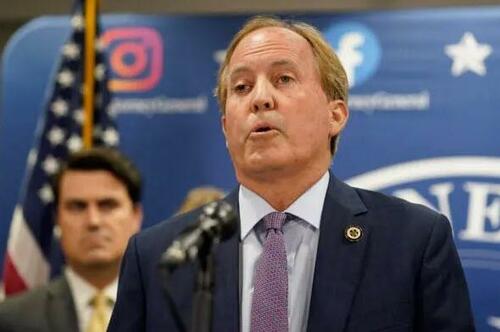Everyone knows medical care in the US is expensive even with insurance and prohibitively expensive without it. I have a lot of patients who are uninsured, or who bounce on and off insurance, or who have trouble affording their co-pays. This is a collection of tricks I’ve learned (mostly from them) to help deal with these situations. They are US-based and may not apply to other countries. Within the US, they are a combination of legal and probably-legal; I’ve tried to mark which is which but I am not a lawyer and can’t make promises. None of this is medical advice; use at your own risk.
This is intended for people who already know they do not qualify for government assistance. If you’re not sure, check HealthCare.gov and look into the particular patchwork of assistance programs in your state and county.
I. Prescription Medication
This section is about ways to get prescription medication for cheaper. If even after all this your prescription medication is too expensive, please talk to your doctor about whether it can be replaced with a less expensive medication. Often doctors don’t think about this and will be happy to work with you if they know you need it. They may also have other ways to help you save money, like giving you the free sample boxes they get from drug reps.
1. Sites like GoodRx.com. This is first because it’s probably the most important thing most people can do to save money on health care. For example, one month of Abilify 5 mg usually costs $930 at Safeway, but only $30 with a GoodRx coupon. There is no catch. Insurances and pharmacies play a weird game where insurances say they’ll only pay one-tenth the sticker price for drugs, and pharmacies respond by dectupling the price of everything. If you have insurance, it all (mostly) cancels out in the end; if you don’t, you end up paying inflated prices with no relation to reality. GoodRx negotiates discounts so that individual consumers can get drugs for the same discounted price as insurances (or better); they also list the prices at each pharmacy so you know where to shop. This is not only important in and of itself, but its price comparison feature is also important to figure out how best to apply the other features in this category. Even if you have insurance, GoodRx prices are sometimes lower than your copay.
2. Get and split bigger pills. Remember how a month of Abilify 5 mg cost $30 with the coupon? Well, a month of Abilify 30 mg also costs $30. Cut each 30 mg pill into sixths, and now you have six months’ worth of Abilify 5 mg, for a total cost of $5 per month. You’ll need a cooperative doctor willing to prescribe you the higher dose. Note that some pills cannot be divided in this way – cutting XR pills screws up the extended release mechanism. Others like seizure medication are a bad idea to split in case you end up taking slightly different doses each time. Ask your doctor whether this is safe for whatever medication you use. Do not ask the pharma companies or trust their literature – they will always say it’s unsafe, for self-interested reasons. Contrary to some doctors’ concerns, this is not insurance fraud if you’re not buying it with insurance, and AFAIK there’s no such thing as defrauding a pharmacy.
3. Mail order from Canada. Canada has lower prices than the US for various prescription drugs. Canadian pharmacies are unlicensed and illegitimate and you should never use them, according to the same people who tell you that marijuana is a gateway drug and porn will fill your computer with Russian viruses. According to everyone else, including most doctors I know, they are fine as long as you avoid obvious scams. They are technically illegal but the FDA has a policy not to prosecute people who buy drugs there for personal use. The Canadian Internet Pharmacy Association maintains a list of ones they consider safe. If I try really hard, I can find a way to get the month of Abilify 5 mg for $4.58 from canadapharmacy.com, but this isn’t really that much better than the best American option. Some other medications do seem to be better, especially ones that are still on patent; if I want a month of Saphris 10 mg, the best I can find on GoodRx is $620, but on canadapharmacy.com there’s a deal for $196.
4. Pharma company patient assistance programs. As part of their continuing effort to pretend they are anything other than soulless profit-maximizing bloodsuckers who will be first against the wall when the revolution comes, some pharma companies offer their drugs for cheap if you can prove you need them and can’t afford the regular price. These are most useful if for some reason you need a specific expensive brand-name drug; if you have any other options you’re better off just buying the generic. You can search for these programs at Partnership For Prescription Assistance, RXAssist, and NeedyMeds. Be very careful to read the fine print on these, because no matter what they pretend, drug companies are soulless profit-maximizing bloodsuckers who will be first against the wall when the revolution comes, and sometimes these are just small discounts that aren’t as good as using one of the other methods. Occasionally a company will give you a great discount that knocks a brand-name medication costing $300 down to only $150 without telling you that there is a similar generic that costs $5. But if you need one specific very expensive thing, and you are lowish-income, and you don’t have government help, this is still your best bet.
5. Get 90+ day supplies. If your insurance charges you a co-pay of $30 per prescription, and you get a 90-day supply instead of a one month supply, then you’re paying $30 once every three months, instead of once a month.
II. Therapy
This section is on ways to do therapy if you cannot afford a traditional therapist. There may also be other options specific to your area, like training clinics attached to colleges that charge “sliding scale” fees (ie they will charge you less if you can’t afford full price).
1. Bibliotherapy: If you’re doing a specific therapy for a specific problem (as opposed to just trying to vent or organize your thoughts), studies generally find that doing therapy out of a textbook works just as well as doing it with a real therapist. I usually recommend David Burns’ therapy books: Feeling Good for depression and When Panic Attacks for anxiety. If you have anger, emotional breakdowns, or other borderline-adjacent symptoms, consider a DBT skills workbook. For OCD, Brain Lock.
2. Free support groups: Alcoholics Anonymous is neither as great as the proponents say nor as terrible as the detractors say; for a balanced look, see here. There are countless different spinoffs for non-religious people or people with various demographic characteristics or different drugs. But there are also groups for gambling addiction, sex addiction, and food addiction (including eating disorders). There’s a list of anxiety and depression support groups here. Groups for conditions like social anxiety can be especially helpful since going to the group is itself a form of exposure therapy.
3. Therapy startups: These are companies like BetterHelp and TalkSpace which offer remote therapy for something like $50/week. I was previously more bullish on these; more recently, it looks like they have stopped offering free videochat with a subscription. That means you may be limited to texting your therapist about very specific things you are doing that day, which isn’t really therapy. And some awful thinkpiece sites that always hate everything are also skeptical. I am interested in hearing experiences from anyone who has used these sites. Until then, consider them use-at-your-own-risk.
III. Supplement Analogues
This section is for people who can no longer afford to see a doctor to get their prescription medication. It discusses what supplements are most similar to prescription medications. This is not an endorsement of these substitutions as exactly as good as the medications they are replacing, a recommendation to switch even if you can still get the original medication, or a guarantee that you won’t go into withdrawal if you switch to these. They’re just better than nothing. Make sure to get these from a trusted supplier. I trust this site, but do your own investigation.
This doesn’t include detailed description of doses, side effects, or interactions; you will have to look these up yourself. These are all either legal, or in a gray area of “probably legal” consistent with them being very widely used without punishment. I am not including illegal options, even though some of them are clearly stronger than these – but you can probably find them if you search.
1. Similar to SSRIs: 5-HTP. This is a serotonin precursor that can serve some of the same roles that selective serotonin reuptake inhibitors do, though this is still controversial and it is probably not as strong. Cochrane Review thinks that “evidence does suggest these substances are better than placebo at alleviating depression”. This may plausibly help with SSRI withdrawal, though not as much as going back on an SSRI. It can be dangerous if you are taking any other serotonergic medication, so check with the doctor prescribing it first. Cost is about $10/month. Definitely legal.
2. Similar to antidepressants in general: Tianeptine. This is a European antidepressant which is unregulated in the US, making it the only way I know to get an regulatory-agency-approved antidepressant without a prescription. Look up the difference between the sodium and the sulfate versions before you buy. Generally safe at the standard dose; higher doses carry a risk of addiction. Cost is about $20/month. Probably legal, widely used without legal challenges.
3. Similar to stimulants: Adrafinil. This is the prodrug of modafinil, a stimulant-ish medication widely used off-label for ADHD. Modafinil itself is Schedule IV controlled (though widely available online); adrafinil is unscheduled and also widely available. Look up the debate over liver safety before you use. Cost is about $30/month. Probably legal, widely used without legal challenges.
4. Similar to anxiety medications: GABA and picamilon. GABA is an endogenous inhibitory neurotransmitter, but it has questionable ability to cross the blood-brain barrier when taken orally (though see here for counterargument). Picamilon is the same neurotransmittor attached to a niacin molecule that helps it cross the BBB more readily. Both are sold as supplements. The evidence base is weak, and this is the entry on this list I am most skeptical of. Use at your own risk (of it not working; it’s probably pretty safe). Neither of these is as strong as a benzodiazepine and these will not significantly relieve acute benzodiazepine withdrawal. Cost is about $30/month. GABA is definitely legal. Picamilon is possibly legal; the FDA has tried to stop companies from selling it as a dietary supplement, but does not seem to be challenging users.
You can find a discussion of other supplements for depression at Part IV here and for anxiety at Part IV here. You can find a discussion of ways that supplements can play a very minor role in helping with psychosis in the second to last paragraph of Part 12 here, but please don’t rely on this. I no longer 100% endorse everything in those lists.
If you know other safe and legal ways to save money on psychiatric care, please mention them in the comments and I’ll add them as they come up.




































